 [Ed. note: ESPN's
[Ed. note: ESPN's 30 for 30
on John Calipari, "One and Not Done," debuts next Thursday, April 13 at 9 p.m. on ESPN, but I was able to get my hands on an advanced copy. After viewing it last night, here are my thoughts.]
There are a lot of people in this world that don't like John Calipari; as a Kentucky fan, odds are you've encountered a lot of them in the last eight years.
"Cal's a cheater!" they say. "Look at what he did at UMass and Memphis!"
"How does it feel to make a deal with the devil?" a Georgia fan had the audacity to ask me a few months ago. "It's only a matter of time, isn't it?"
I've learned that defending Calipari to his haters is useless because, at this point, their perception of him has hardened into rock. Even after reaching the pinnacle of his career,
Calipari remains the most polarizing figure in college basketball, which is why ESPN's 30 for 30 on him is so fascinating. "One and Not Done" chronicles Calipari's career from his upbringing as the son of blue collar parents and the grandson of Italian immigrants to his induction to the Basketball Hall of Fame, but the part that was most interesting to me was Calipari's rise from a junior counselor at Five-Star Basketball Camp to his first head coaching job at UMass. That's always been a time Calipari talks about fondly, but director Jonathan Hock uses testimonies from Cal's friends, colleagues, former players, and yes, enemies, to bring it to life. I can't share specifics from the film, but what struck me most was how Cal's peers described his relentless ambition, which sometimes, as even he admits, got out of control. I'm paraphrasing here, but as one of Calipari's mentors says, what makes Cal so great is that if you lock a bunch of people in a dark room and throw away the key, he'll be the first to find a way out.
By now, you know all about Calipari's career, so you should be familiar with most of the ground the documentary covers (the never-before-seen footage and pictures are awesome); however,
Hock's biggest achievement is exploring how Cal is perceived in the public eye. He sheds light on the parts of Cal's life and career that most may not know about (or choose to ignore) while balancing it with the chorus of criticism Cal has received throughout. The documentary includes several of Calipari's former players and friends, but also former UConn coach Jim Calhoun, who serves almost as a reminder of those Cal has burned along the way. You can hear echoes of Cal's enemies in Calhoun's voice as he recalls Cal blazing the recruiting trail at UMass, and through interviews with others, sense the struggle many coaches had in dealing with an up and comer who, for lack of a better phrase, gave no f---s. That chip on Cal's shoulder may be covered in $3,000 Italian wool now, but watching and hearing about how sharp it was back in the day tells you a lot about the man he is today and why he's been so successful AND controversial.

The documentary spends plenty of time on the Marcus Camby and Derrick Rose ordeals, the crux of any Calipari hater's arguments; Hock does a good job of painting both of those stories in a responsible light through interviews with Cal, Camby, Rose, and those who covered UMass and Memphis at the time. After watching it, it seems pretty clear to me that Cal had no knowledge of either of the trespasses, but that will probably do little to deter those who have spent decades believing otherwise. More interesting to me will be what those people say after viewing the part about Cal's relationship with William Wesley, aka World Wide Wes, which actually began when Wes sought him out to coach his nephew, Dajuan Wagner, at Memphis. Again, I can't talk specifics, but that interaction laid the foundation for not only Calipari and Wes' relationship for years to come, but Cal's selfless approach to players going to the NBA. Wagner's story is one I wasn't familiar with, and even to those who hate Cal the most, humanizes his philosophy. That story is echoed in all of the stars Cal's coached: Camby, Rose, John Wall, DeMarcus Cousins, Anthony Davis, Karl Towns, Devin Booker, who all speak during the documentary. By now, we know why Cal encourages players to chase their dream, even if it comes at the expense of his own success; this documentary shows that side of him to the world.
My final takeaway from the
30 for 30 is this: John Calipari blazed a path for himself in this industry and didn't care about making friends along the way. However, when it all comes down to it, he does care about validation, which makes the end of the documentary so powerful. As Cal's former players gather around him on stage at the Hall of Fame induction, it's hard not to be moved. By now, the harshest of his critics can't argue with his success, and those who hate him? After seeing this documentary, they can't help but soften, even if they won't admit it.
 [Ed. note: ESPN's 30 for 30 on John Calipari, "One and Not Done," debuts next Thursday, April 13 at 9 p.m. on ESPN, but I was able to get my hands on an advanced copy. After viewing it last night, here are my thoughts.]
There are a lot of people in this world that don't like John Calipari; as a Kentucky fan, odds are you've encountered a lot of them in the last eight years.
"Cal's a cheater!" they say. "Look at what he did at UMass and Memphis!"
"How does it feel to make a deal with the devil?" a Georgia fan had the audacity to ask me a few months ago. "It's only a matter of time, isn't it?"
I've learned that defending Calipari to his haters is useless because, at this point, their perception of him has hardened into rock. Even after reaching the pinnacle of his career, Calipari remains the most polarizing figure in college basketball, which is why ESPN's 30 for 30 on him is so fascinating. "One and Not Done" chronicles Calipari's career from his upbringing as the son of blue collar parents and the grandson of Italian immigrants to his induction to the Basketball Hall of Fame, but the part that was most interesting to me was Calipari's rise from a junior counselor at Five-Star Basketball Camp to his first head coaching job at UMass. That's always been a time Calipari talks about fondly, but director Jonathan Hock uses testimonies from Cal's friends, colleagues, former players, and yes, enemies, to bring it to life. I can't share specifics from the film, but what struck me most was how Cal's peers described his relentless ambition, which sometimes, as even he admits, got out of control. I'm paraphrasing here, but as one of Calipari's mentors says, what makes Cal so great is that if you lock a bunch of people in a dark room and throw away the key, he'll be the first to find a way out.
By now, you know all about Calipari's career, so you should be familiar with most of the ground the documentary covers (the never-before-seen footage and pictures are awesome); however, Hock's biggest achievement is exploring how Cal is perceived in the public eye. He sheds light on the parts of Cal's life and career that most may not know about (or choose to ignore) while balancing it with the chorus of criticism Cal has received throughout. The documentary includes several of Calipari's former players and friends, but also former UConn coach Jim Calhoun, who serves almost as a reminder of those Cal has burned along the way. You can hear echoes of Cal's enemies in Calhoun's voice as he recalls Cal blazing the recruiting trail at UMass, and through interviews with others, sense the struggle many coaches had in dealing with an up and comer who, for lack of a better phrase, gave no f---s. That chip on Cal's shoulder may be covered in $3,000 Italian wool now, but watching and hearing about how sharp it was back in the day tells you a lot about the man he is today and why he's been so successful AND controversial.
[Ed. note: ESPN's 30 for 30 on John Calipari, "One and Not Done," debuts next Thursday, April 13 at 9 p.m. on ESPN, but I was able to get my hands on an advanced copy. After viewing it last night, here are my thoughts.]
There are a lot of people in this world that don't like John Calipari; as a Kentucky fan, odds are you've encountered a lot of them in the last eight years.
"Cal's a cheater!" they say. "Look at what he did at UMass and Memphis!"
"How does it feel to make a deal with the devil?" a Georgia fan had the audacity to ask me a few months ago. "It's only a matter of time, isn't it?"
I've learned that defending Calipari to his haters is useless because, at this point, their perception of him has hardened into rock. Even after reaching the pinnacle of his career, Calipari remains the most polarizing figure in college basketball, which is why ESPN's 30 for 30 on him is so fascinating. "One and Not Done" chronicles Calipari's career from his upbringing as the son of blue collar parents and the grandson of Italian immigrants to his induction to the Basketball Hall of Fame, but the part that was most interesting to me was Calipari's rise from a junior counselor at Five-Star Basketball Camp to his first head coaching job at UMass. That's always been a time Calipari talks about fondly, but director Jonathan Hock uses testimonies from Cal's friends, colleagues, former players, and yes, enemies, to bring it to life. I can't share specifics from the film, but what struck me most was how Cal's peers described his relentless ambition, which sometimes, as even he admits, got out of control. I'm paraphrasing here, but as one of Calipari's mentors says, what makes Cal so great is that if you lock a bunch of people in a dark room and throw away the key, he'll be the first to find a way out.
By now, you know all about Calipari's career, so you should be familiar with most of the ground the documentary covers (the never-before-seen footage and pictures are awesome); however, Hock's biggest achievement is exploring how Cal is perceived in the public eye. He sheds light on the parts of Cal's life and career that most may not know about (or choose to ignore) while balancing it with the chorus of criticism Cal has received throughout. The documentary includes several of Calipari's former players and friends, but also former UConn coach Jim Calhoun, who serves almost as a reminder of those Cal has burned along the way. You can hear echoes of Cal's enemies in Calhoun's voice as he recalls Cal blazing the recruiting trail at UMass, and through interviews with others, sense the struggle many coaches had in dealing with an up and comer who, for lack of a better phrase, gave no f---s. That chip on Cal's shoulder may be covered in $3,000 Italian wool now, but watching and hearing about how sharp it was back in the day tells you a lot about the man he is today and why he's been so successful AND controversial.
 The documentary spends plenty of time on the Marcus Camby and Derrick Rose ordeals, the crux of any Calipari hater's arguments; Hock does a good job of painting both of those stories in a responsible light through interviews with Cal, Camby, Rose, and those who covered UMass and Memphis at the time. After watching it, it seems pretty clear to me that Cal had no knowledge of either of the trespasses, but that will probably do little to deter those who have spent decades believing otherwise. More interesting to me will be what those people say after viewing the part about Cal's relationship with William Wesley, aka World Wide Wes, which actually began when Wes sought him out to coach his nephew, Dajuan Wagner, at Memphis. Again, I can't talk specifics, but that interaction laid the foundation for not only Calipari and Wes' relationship for years to come, but Cal's selfless approach to players going to the NBA. Wagner's story is one I wasn't familiar with, and even to those who hate Cal the most, humanizes his philosophy. That story is echoed in all of the stars Cal's coached: Camby, Rose, John Wall, DeMarcus Cousins, Anthony Davis, Karl Towns, Devin Booker, who all speak during the documentary. By now, we know why Cal encourages players to chase their dream, even if it comes at the expense of his own success; this documentary shows that side of him to the world.
My final takeaway from the 30 for 30 is this: John Calipari blazed a path for himself in this industry and didn't care about making friends along the way. However, when it all comes down to it, he does care about validation, which makes the end of the documentary so powerful. As Cal's former players gather around him on stage at the Hall of Fame induction, it's hard not to be moved. By now, the harshest of his critics can't argue with his success, and those who hate him? After seeing this documentary, they can't help but soften, even if they won't admit it.
The documentary spends plenty of time on the Marcus Camby and Derrick Rose ordeals, the crux of any Calipari hater's arguments; Hock does a good job of painting both of those stories in a responsible light through interviews with Cal, Camby, Rose, and those who covered UMass and Memphis at the time. After watching it, it seems pretty clear to me that Cal had no knowledge of either of the trespasses, but that will probably do little to deter those who have spent decades believing otherwise. More interesting to me will be what those people say after viewing the part about Cal's relationship with William Wesley, aka World Wide Wes, which actually began when Wes sought him out to coach his nephew, Dajuan Wagner, at Memphis. Again, I can't talk specifics, but that interaction laid the foundation for not only Calipari and Wes' relationship for years to come, but Cal's selfless approach to players going to the NBA. Wagner's story is one I wasn't familiar with, and even to those who hate Cal the most, humanizes his philosophy. That story is echoed in all of the stars Cal's coached: Camby, Rose, John Wall, DeMarcus Cousins, Anthony Davis, Karl Towns, Devin Booker, who all speak during the documentary. By now, we know why Cal encourages players to chase their dream, even if it comes at the expense of his own success; this documentary shows that side of him to the world.
My final takeaway from the 30 for 30 is this: John Calipari blazed a path for himself in this industry and didn't care about making friends along the way. However, when it all comes down to it, he does care about validation, which makes the end of the documentary so powerful. As Cal's former players gather around him on stage at the Hall of Fame induction, it's hard not to be moved. By now, the harshest of his critics can't argue with his success, and those who hate him? After seeing this documentary, they can't help but soften, even if they won't admit it.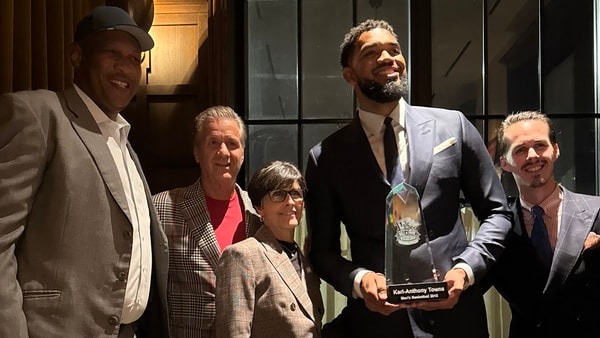
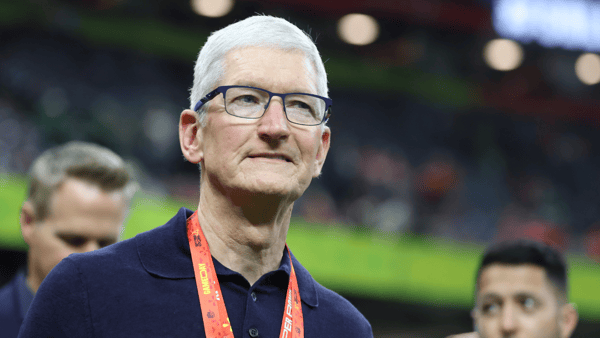
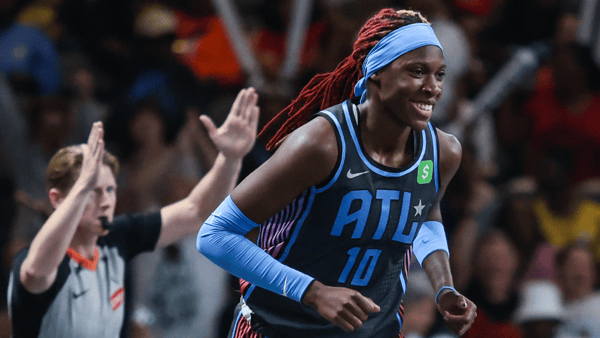
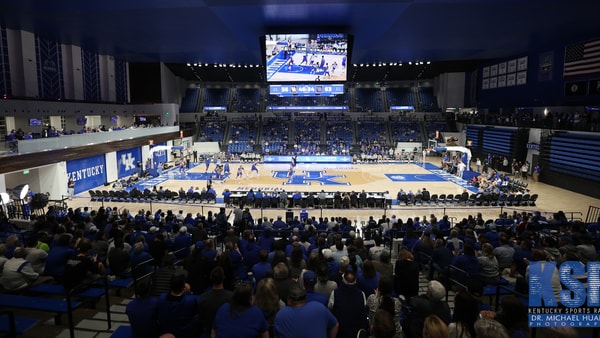
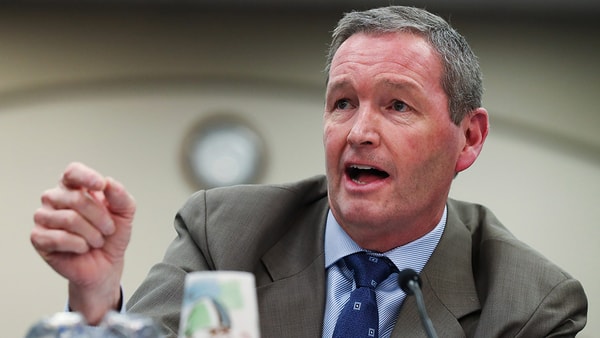
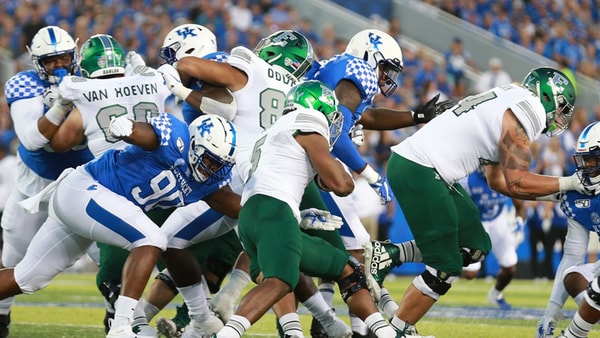
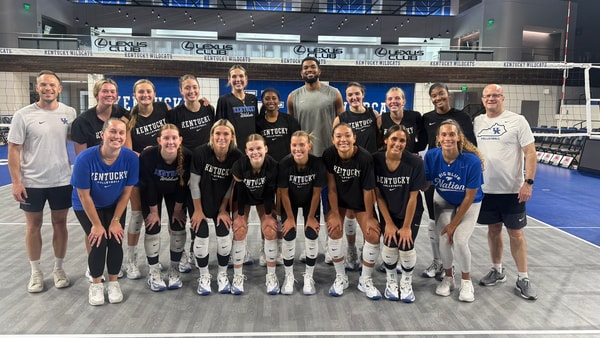
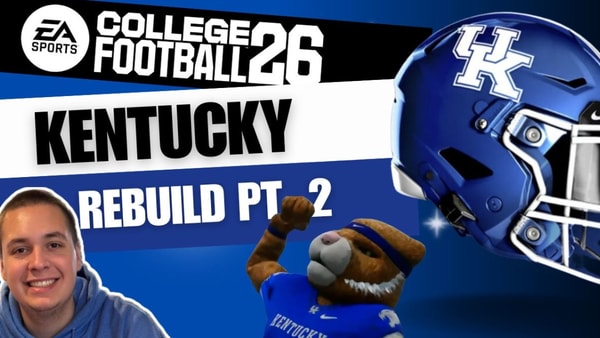
Discuss This Article
Comments have moved.
Join the conversation and talk about this article and all things Kentucky Sports in the new KSR Message Board.
KSBoard